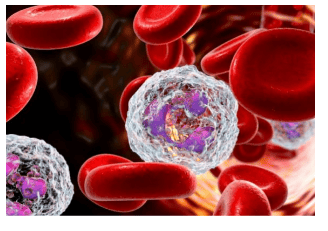This is an automatically translated article.
The digestive system of young children is still immature, it is difficult to avoid problems related to this organ system, especially digestive disorders. This condition occurs, causing the baby not to absorb the necessary nutrients for the body to develop, leading to stunting, slow weight gain and growth retardation. Therefore, understanding this symptom helps parents have effective ways to care for children with digestive disorders.
1. Some characteristics of digestive disorders in children
Digestive disorders in children often appear when the child's digestive system has problems such as abnormal spasms, making the child feel abdominal pain accompanied by some symptoms such as bloating and gas, indigestion, nausea and vomiting. can vomiting, diarrhea, constipation ...
In addition, children with digestive disorders also have symptoms such as pale skin, pale skin, poor physical activity, always sluggish and tired. fatigue, live stools, fishy smell and water with air bubbles, growth retardation, stunting, malnutrition.
Depending on the condition of the child and the degree of different digestive disorders in the child can adversely affect the physical and intellectual development of the child.
2. The reasons leading to digestive disorders in children
Daily diet, abuse of antibiotics, polluted environment... can cause children to have digestive disorders.
Unreasonable diet
When parents prepare food for their children's meals improperly and at the same time do not ensure food hygiene and safety, children are prone to bloating, diarrhea, vomiting. In addition, when forcing children to eat too much or at the wrong time to eat or eat too many indigestible foods such as red meat, fat causes the child's digestive tract to work too hard.
Abuse of antibiotics
When children are sick, many parents use antibiotics incorrectly, causing children to have digestive disorders. Because antibiotics have the function of disinfecting and destroying disease-causing microorganisms. And at the same time, it also accidentally destroys beneficial intestinal bacteria, leading to a dysbacteriosis in the digestive system of children, causing an imbalance of intestinal bacteria in children.
Children with digestive tract diseases
Children with some intestinal-related diseases such as colitis, gastritis, inflammatory bowel disease adversely affect the child's digestive system.
Polluted environment
Living environment around children is polluted, dirty, or dirty toys are not cleaned regularly, making the child's intestinal tract very susceptible to infection.
3. How to treat children with digestive disorders
With each case of digestive disorders, parents need to take timely measures to reduce discomfort and health hazards for their children.
In case the child has symptoms of vomiting, regurgitation, parents should do the following:
Tilt the child's head to one side, quickly absorb all the vomit in the child's mouth, throat and nose with gauze, towel or suction . Use cupped hands to gently stroke the sides of the child's back both to comfort him and to let him cough to get rid of any remaining vomit in his or her throat. Use another towel with warm water to wipe the child's neck, mouth and body. Then change the baby's clothes. Parents need to monitor whether the child is vomiting again and how the child's vomiting is. For children with diarrhea, parents need to rehydrate the child orally, using oresol. Let the child drink little by little until the child is no longer thirsty. Especially note that the oresol solution is only taken during the day, if you do not drink it all, it must be thrown away
In case, the children are constipated due to digestive disorders, parents need to determine what the cause is? Often children with constipation due to digestive disorders often have symptoms, infrequent bowel movements, chestnut-like stools, dry hard, and the child's abdomen feels hard and the child feels pain. In this case, parents encourage children to drink lots of water, eat lots of green vegetables, especially those with laxative properties such as spinach, sweet potatoes, orchids, fruits such as bananas, oranges, and grapefruits. ..
If the child is still at the age of using formula, parents need to choose milk that does not cause constipation and has added fiber. Moreover, children with constipation should not use acrid fruits such as guava, sapodilla..

Cha mẹ cần thực hiện bù nước cho trẻ bằng đường uống khi trẻ bị tiêu chảy
4. A few notes on how to take care of children with digestive disorders
When taking care of children with digestive disorders, parents should have the following notes:
4.1. Building a nutritious diet
Parents need to build a daily diet in accordance with the following criteria: The quality of the meal needs to be balanced with nutrients. The composition of nutrients needs to provide enough 4 groups of protein, lipid, glucide, vitamins and minerals. In addition, parents need to choose foods suitable for their children's ages to help them digest nutrients from food more easily. Because if the child has just started weaning, but the parents choose solid, hard and difficult foods to eat, it can make the child's digestive system not fully developed to work too much or reduce the secretion of enzymes and reduce peristalsis. intestine.
In addition, the issue of food safety and hygiene when preparing food for children is very important. .
Improving children's eating habits also helps in better digestive disorders. For young children, forcing them to eat a complete meal is quite difficult, and causes fear and negative reactions in them. Therefore, parents should create a happy atmosphere when feeding their children and if children do not eat all the portions, they should divide the meals into small portions so that the children can consume all their daily dietary needs. The process of dividing meals also helps children eat more, food is fully digested and avoids the child's digestive system having to work too hard.
4.2. Keep the kids clean
One of the ways to take care of children with digestive disorders that parents need to care about should keep the child's hygiene. Young children often suck their hands or toys or objects around them. This is also the easiest way for bacteria to enter the body, causing effects on organs in the body.
Therefore, with young children, parents often clean the house, and living environment, and wash the children's toys regularly. As for older children, parents should remind them and teach them the habit of keeping their hands and feet clean.
4.3. Increase movement in children
Parents should create conditions for children to increase exercise to help increase resistance. Caring for children with digestive disorders is known for the way that children are active and physically active, both to help children develop physically and to strengthen children's resistance. Depending on the age of the child, parents will choose appropriate types of exercise such as cycling, soccer, badminton,...
4.4. Avoid drug abuse
Parents are not allowed to arbitrarily use drugs for children without a doctor's prescription. When children have digestive system problems, they often self-medicate with drugs to treat this disease. However, the drugs that parents use can reduce bloating, treat constipation, diarrhea or digestive enzymes.
These products can be a double-edged sword in the treatment of children's diseases. Although it is possible for parents to immediately see the effect of the drug on the child's condition, regular use can expose the child to a situation of dependence on the drug and affect the normal functioning of the digestive system. metabolism including enzyme secretion, intestinal contractions, peristalsis...

Tránh lạm dụng thuốc khi chăm sóc trẻ rối loạn tiêu hóa
4.5. Add probiotic products
Parents should consult a doctor to supplement probiotic products to help overcome digestive disorders in children. 70% of a child's immune system is located in the digestive system. When the digestive system is healthy, it will help children overcome all diseases quickly. The addition of probiotic products can meet this requirement, but should be examined and prescribed by a doctor.
5. What are the signs that a child should see a doctor?
For children who have digestive disorders and appear together with the following signs, parents should take the child to see a doctor to diagnose the specific cause, then have a treatment plan.
Children with digestive disorders are often accompanied by vomiting, vomiting, poor sleep, always tired and with young children, they are often fussy Children have digestive disorders with prolonged diarrhea and dehydration. . Children with symptoms of constipation for many days, sometimes blood in the stool, or anal fissures, Pediatrics Department of Vinmec International General Hospital is a reputable address for treating digestive disorders for children. Here, with a team of highly qualified doctors, a system of medical equipment, the clinic also needs to meet standards to protect the immature health of children in the best way.
Moreover, Vinmec also provides dedicated and attentive medical services, always taking the customer's interests as the center, helping customers have the most satisfied experience when choosing medical examination and treatment here.
Please dial HOTLINE for more information or register for an appointment HERE. Download MyVinmec app to make appointments faster and to manage your bookings easily.













